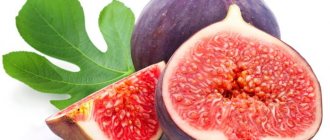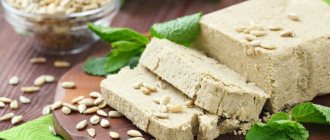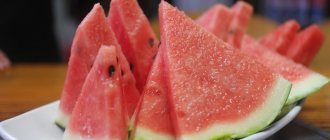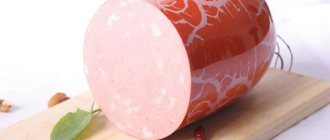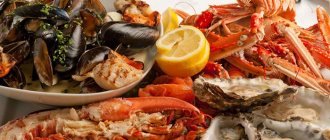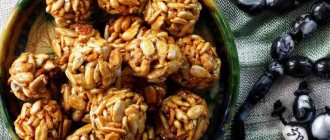Beneficial properties of fruits and introduction to the diet
An infant needs a sufficient amount of vitamins and microelements. The usefulness of breast milk and the regeneration of the body after childbirth depends on the sufficient saturation of a person with beneficial microorganisms; the oil tree product contains everything necessary for the complete resumption of the body’s functioning. Beneficial components contained in the product: - monoenoic fatty acids, which increase brain activity, the condition of the skin, improve heart function, help maintain human immunity, and normalize the functioning of genital hormones; -vitamin E helps in the absorption of calcium and carotene; - a powerful antioxidant (polyphenol) reduces the risk of disruptions in the functioning of human organ systems; -magnesium is a powerful substance for maintaining the nervous system; -calcium restores bone tissue. An infant is very sensitive to chemicals added to olive fruits. A high-quality olive tree product is considered a dietary food, and is also extremely beneficial and non-allergic for mothers with breastfeeding. Breastfeeding obliges mothers to make a list of products; olive fruits can be included and consumed in the first or second month of the child’s life, if the expectant mother ate the product before giving birth. Having not used it before, it is better not to take risks and wait until the infant grows up to 3-4 months. A breastfeeding baby will react to a new product within 48 hours. A young mother should check whether it causes allergies in the baby. If everything is in order, then a few olives a couple of times during the week will help a nursing woman recover.
Olives for women
09.05.2019
A woman, due to her physiological characteristics, can be in fundamentally different states at different periods of her life. There are several main types:
- Life period before pregnancy
- Period of conception and pregnancy
- Childbirth and breastfeeding period
- Starting the menstrual cycle after pregnancy and breastfeeding
Olives are a berry that consists of more than half olive oil, a little water, a little fiber and other substances (excluding the pit). Various processes are used to prepare olives. If we are talking about high-quality natural olives, then when preparing them, brine is used, which, in turn, consists of:
- Water
- Salts
- Seasonings and spices
- Sometimes wine vinegar
- Sometimes olive oil
But before the olives are placed in the brine, they must be kept in water for some time (quite a long time, sometimes up to six months). This is necessary to remove the bitterness from the olives.
There is a faster and cheaper process. Olives are treated with various chemical components, which allows the semi-finished product to be transformed into a finished product within a few days or a couple of weeks. These olives can often be seen in tins on supermarket shelves.
A healthy young woman with a normal metabolism and without any pathologies can consume all types of olives without any problems. Limitations here may include her habits and food culture, the state of her wallet (natural olives are not cheap), as well as the region of residence. But then pregnancy comes.
Pregnancy is different for every woman. Depending on how it progresses, the doctor monitoring it may impose any restrictions or, on the contrary, recommend certain products. During normal pregnancy, olives are very useful and recommended for use. But, unlike everyday life, it is worth excluding cheap oxidized olives from your diet and choosing products more carefully. Natural olives in natural brine are not only healthy, but can also satisfy the need of many pregnant women for such a phenomenon as “I want something salty.” Almost any quality olives are always salted. Salt here acts as a preservative. The beneficial substances contained in olives are very useful not only for the nutrition of the expectant mother, but also for the unborn child. After all, what the mother eats is inevitably (to one degree or another) consumed by the fetus. Almost the only restriction can be salt, if there are contraindications. But this is not an insurmountable problem. Olives release salt very well if you place them in plain clean water for a day or more.
Eating olives while breastfeeding.
Can a woman eat olives while breastfeeding? Why not. Everything that was said above. In the section about pregnant women, indeed in the subsequent state. Let us remind you that more than half of olives consist of olive oil, and it, in turn, is not only allowed, but also recommended for use by both pregnant women and nursing mothers.
As in the previous case, I would like to warn against buying low-quality olives. After all, mother's milk is synthesized from those substances that a young mother eats. And if cheap, oxidized olives are present in her diet, then the baby will inevitably receive not the most beneficial chemical components contained in them along with mother’s milk. Whereas a high-quality product will fill mother's milk with useful substances and microelements. At the same time, regular consumption of natural olives makes the skin and cartilage (both mother and baby) more elastic and flexible. In this regard, olives are not only recommended for nursing mothers, but necessary as an essential component of nutrition. If a young mother does not want to eat olives during breastfeeding, they can be replaced with olive oil.
The benefits of olives for women in subsequent periods.
An incredible amount of research has been conducted that has proven the undoubted benefits of regular consumption of olives for the female body. The following areas can be distinguished:
- Beneficial effect on the gastrointestinal tract
- Beneficial effects on the cardiovascular system
- Beneficial effect on menstruation
- Beneficial effect on skin condition
- Beneficial effect on hair and nails
We will repeat ourselves again and again. We are talking about a natural product. If you are not sure of the quality of the product, it is better to refrain from purchasing and consuming it. The principle of “do no harm” and “less is better, but better” applies here. You should buy olives in trusted places and specialized stores. What is the use of olives that are processed “for some reason” and contain salt, fiber and chemical components? So, pamper the taste...
Sometimes you can hear arguments that olives are very high in calories and are not suitable for women who are on a diet. Not certainly in that way.
Olives for weight loss
At the very least, it is incompetent to consider the usefulness of certain products solely in terms of calories.
- Fats are different from fats. And those polyunsaturated monofats that are contained in olive oil are necessary for any body. Even those who are on a strict diet. Just the opposite. Several olives can satisfy the female body’s need for fats (remember, these fats are needed by the skin, nails, hair, cartilage, and other internal organs).
- Any diet requires a balance of incoming nutrients. If there are contraindications to the use of salt, then olives can be replaced with olive oil or soaked in water.
Because of this, olives for weight loss also do not contradict the general principles of a healthy diet, but on the contrary, they are a desirable component of most diets.
We are not getting any younger year after year. What is the situation with the consumption of olives in adulthood and old age? The answer is simple. Nothing changed. If you don’t abuse the quantity and buy a natural product, then older women simply need olives. Maybe even more than young people.
Natural olives for women and men
Summarize
- Olives are recommended for women at all stages of life.
- Olives are not contraindicated for pregnant women
- Nursing mothers can use olives
- Olives are a must for older ladies
The dangers of canned food
Exclusively Russian people divide the fruits of the olive tree into olives (green skin) and olives (black skin). Green olive is a special variety that has a green or dark brown color. Today, technical canning of olives turns the truly unripe fruits of the tree black.
Interesting! There is a misconception that an olive is an unripe olive. In Russia they don’t know that these are the same product.
Fresh olives have an unpleasant bitter taste, so people try to eat them in canned form. The process of decomposition of natural substances takes several months, in turn this reduces the speed of production and the profit of the manufacturer. To reduce production time, by aging the fruits in a chemical alkaline solution, the unpleasant bitterness disappears. To give olives a beautiful black color, caustic soda is saturated with iron gluconate. Therefore, many canned olives found on the shelves of all stores can cause dangerous harm to your baby. Substances with chemicals negatively affect the digestion of an infant, brain activity and the body as a whole. The preservative E579 causes disruption of the heart, liver and kidneys. Caustic soda causes corrosion of the skin and mucous membranes.
Is it possible for nursing mothers to use milk?
A common cause of allergies in children is cow protein. That is why young parents are often concerned about the question: Can a nursing mother drink milk? In the article we will look at the effect of the product on lactation and child health.
Should I drink milk during breastfeeding?
There is an opinion that drinking milk has a beneficial effect on lactation. However, it has now been proven that this is not the case. In addition, fresh cow's milk can completely slow down the lactation process. That is why it is advised to refrain from using the product in order to avoid bloating, colic and allergic reactions in the child.
However, the drink is not on the list of prohibited foods during lactation. Therefore, if a mother cannot do without cow’s milk, then you can gradually introduce it into the diet. It is recommended to start with a few tablespoons and limit the consumption of the drink to one glass per day. In addition, you can cook porridges and soups based on milk, make casseroles, purees and fruit and berry smoothies (apple, banana, gooseberries, currants, etc.).
To maintain lactation, many mothers drink black tea with milk. The product can also be added to coffee, since milk components reduce the amount of caffeine.
If you are afraid of allergies in your child, then cow's milk can be replaced with goat's milk. The product is famous for its hypoallergenic properties and is similar in composition to breast milk.
Also, to avoid allergies or if a reaction is noticed, the drink can be replaced with baked milk.
As for condensed milk, it is necessary to observe the consumption limit. Condensed milk can easily replace sweets (sweets, chocolate and marmalade). The product can be added to tea or eaten in combination with berries and fruits.
During lactation, doctors recommend including fermented milk products in your diet - yogurt, natural yogurt, low-fat kefir. In addition, you should eat processed cottage cheese (casseroles, cheesecakes, pies, dumplings) and hard cheeses.
What to do if your child has an allergy
If the baby is breastfed and his body is covered with red spots, then milk and dairy products should be excluded from the diet for five to seven days. Next time it is recommended to drink the drink no earlier than in a month.
However, dairy products and drinks may not always be the cause of allergies. The reaction may well be delayed to complementary foods that the child received in the maternity hospital. Or the sensitivity of the child’s body can be provoked by other allergens. If a child’s allergic reaction does not go away for a long time, it is worth donating blood for a test.
Diet without dairy products
If a mother or child suffers from an allergy to dairy products, then it is necessary to eat properly during lactation.
The necessary vitamins, minerals, protein and calcium can be obtained by eating cauliflower, broccoli, rye bread, fish, eggs, meat, cereals, sesame seeds and almonds.
To summarize, we note whether to drink milk or not during feeding is an individual choice that depends on the characteristics of the baby. Therefore, introduce the product into your diet gradually and follow the norms.
To ensure your baby gets the right amount of nutrients while breastfeeding, follow the basics of proper nutrition. What you should eat during lactation, and what it is better to abstain from, you will find in the articles that contains our section Nutrition during lactation.
How to choose a safe product
What you need to pay attention to when choosing a product: -price of the product; - the jar must bear the signature “natural fermentation” or “without chemical treatment”; -if it contains iron gluconate or otherwise E579, you can without a doubt put the jar back on the shelf; - with natural fermentation, when eating olives you will experience a juicier taste and softer fruits; - olives in a transparent glass jar should contain clear brine. It is worth paying special attention to expiration dates; fruits can maintain quality for a long time, but consuming a product with an expired or suitable expiration date is dangerous for your health!
Side effects
Side effects occur when eating a low-quality product. The list of possible ones includes:
- flatulence;
- abdominal pain;
- nausea and vomiting;
- diarrhea;
- dizziness;
- allergic reactions.
With prolonged use, more dangerous complications are possible:
- renal and liver failure;
- disturbances in brain function;
- lesions of the mucous membranes of the gastrointestinal tract;
- heart rhythm disturbances.
Long-term use of a product prepared by an unscrupulous manufacturer is dangerous to the health and life of the patient. A one-time use can result in food poisoning, and use for several months can result in ulcerative lesions of the gastrointestinal tract.

